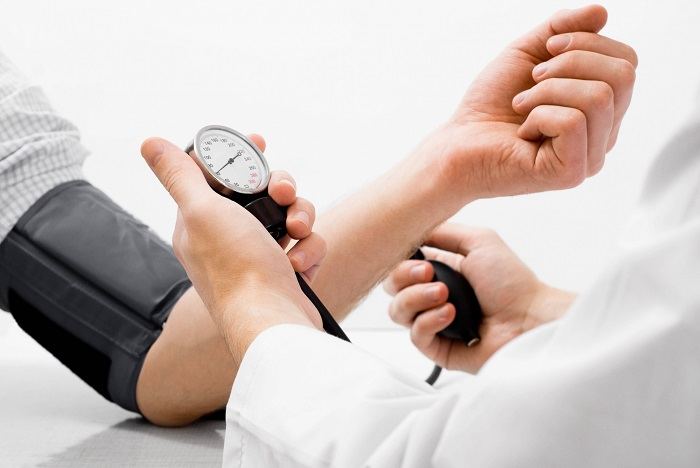Blood pressure is a vital sign that can tell us a lot about our health. When the bottom number, known as diastolic blood pressure, is high, it’s important to understand what might be causing it.
Diastolic blood pressure represents the pressure in your arteries when your heart is at rest between beats. It’s the second number in a blood pressure reading (e.g., 120/80, where 80 is the diastolic). A normal diastolic blood pressure is typically considered to be below 80 mmHg. When this number starts to climb, it can indicate underlying issues that need attention.
What you eat can have a significant impact on your diastolic blood pressure. A diet high in sodium can cause the body to retain water, increasing blood volume and putting more pressure on the artery walls during the heart’s resting phase. Processed foods, canned soups, and salty snacks are common culprits. On the other hand, a diet rich in potassium – found in fruits like bananas, oranges, and vegetables such as spinach – can help counteract the effects of sodium and promote healthy blood pressure.
A sedentary lifestyle is closely linked to high diastolic blood pressure. When you don’t exercise regularly, your heart and blood vessels don’t get the workout they need to stay strong and efficient. This can lead to increased stiffness in the arteries, causing the diastolic pressure to rise. Even simple activities like walking for 30 minutes a day can make a difference. Exercise helps the heart pump blood more effectively and improves the flexibility of blood vessels.
Excessive alcohol intake can raise diastolic blood pressure. While moderate drinking may have some health benefits, heavy drinking can disrupt the body’s normal blood pressure regulation. Caffeine, too, can have an impact. While the evidence isn’t as clear – cut as with alcohol, some people may be more sensitive to caffeine, which can cause a temporary spike in blood pressure. Monitoring your intake of both alcohol and caffeine and moderating it if necessary can be beneficial.
The kidneys play a crucial role in regulating blood pressure. If they’re not functioning properly, they may not be able to effectively remove excess sodium and fluid from the body. This can lead to increased blood volume and higher diastolic blood pressure. Conditions like chronic kidney disease or kidney stones can disrupt the normal balance.
Hormones can also influence diastolic blood pressure. For example, an overactive thyroid gland (hyperthyroidism) can cause the heart to beat faster and harder, increasing blood pressure. Similarly, conditions that affect the adrenal glands, such as Cushing’s syndrome, can lead to hormonal changes that raise blood pressure.
Sleep apnea is a condition where breathing repeatedly stops and starts during sleep. This can cause drops in oxygen levels and increases in carbon dioxide, which put stress on the heart and blood vessels. Over time, it can lead to high blood pressure, including an elevated diastolic reading. People with sleep apnea often snore loudly, feel tired during the day, and may have morning headaches.
Certain medications can cause an increase in diastolic blood pressure as a side effect. For example, some non – steroidal anti – inflammatory drugs (NSAIDs), decongestants, and certain antidepressants may have this effect. Additionally, some herbal supplements or weight – loss products may interact with the body’s normal blood pressure regulation. It’s important to always discuss any new medications or supplements with your healthcare provider.
In conclusion, a high diastolic blood pressure can be caused by a variety of factors. By being aware of these potential causes, you can take steps to manage your blood pressure. This may include making lifestyle changes, getting proper medical treatment for underlying conditions, and being cautious with medications and supplements. If you notice a consistently high bottom number in your blood pressure readings, it’s crucial to consult your doctor for further evaluation and advice.
Read more
- Your Guide to Blood Pressure: Normal Systolic & High Diastolic
- What Makes Your Bottom BP Number High?
- What Causes Diastolic Hypertension: Quick Guide


